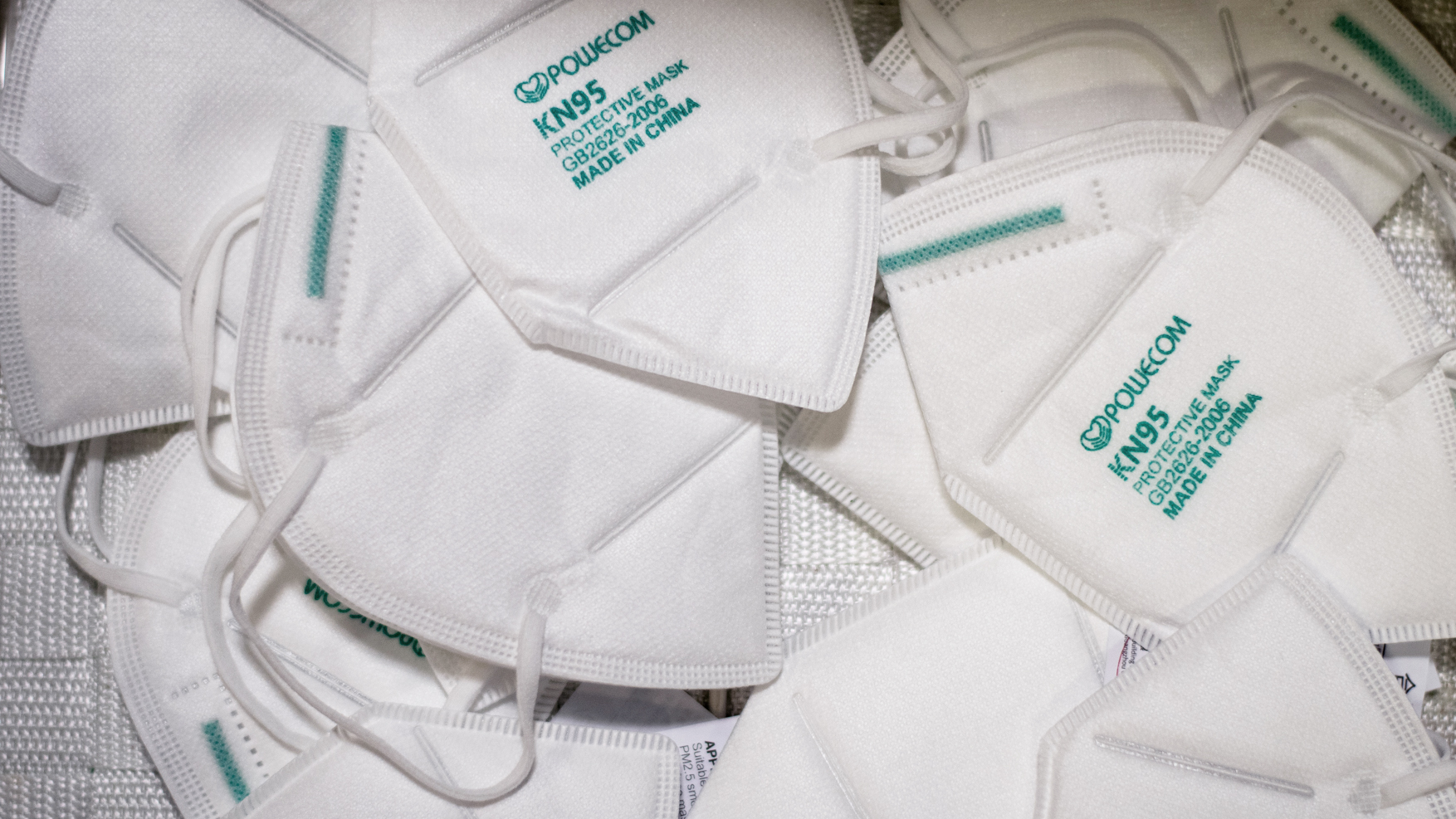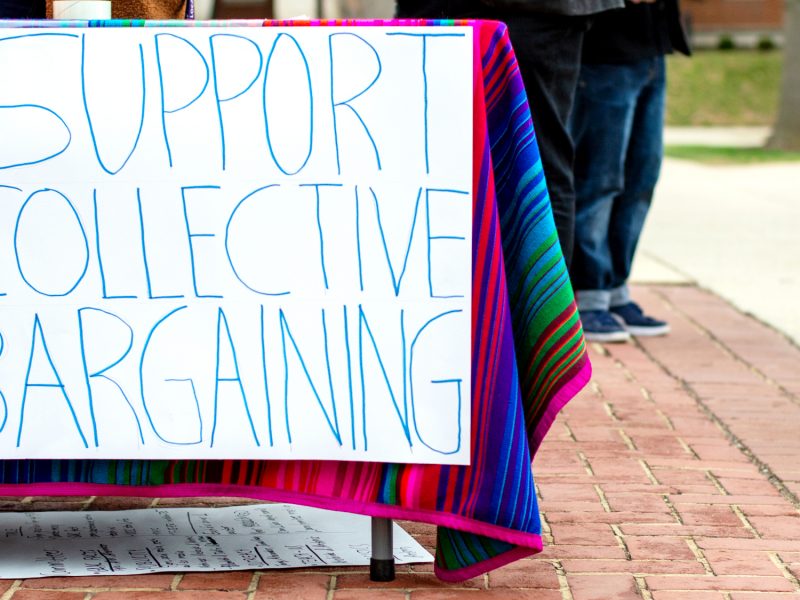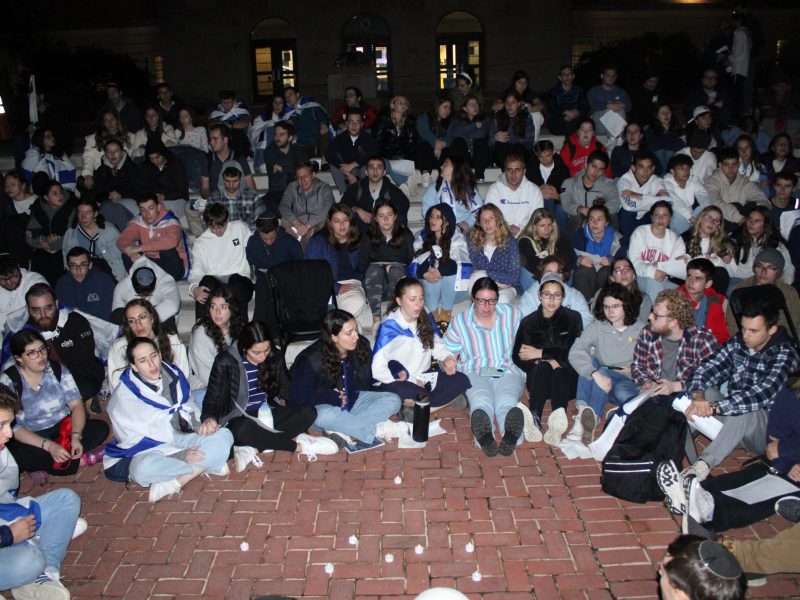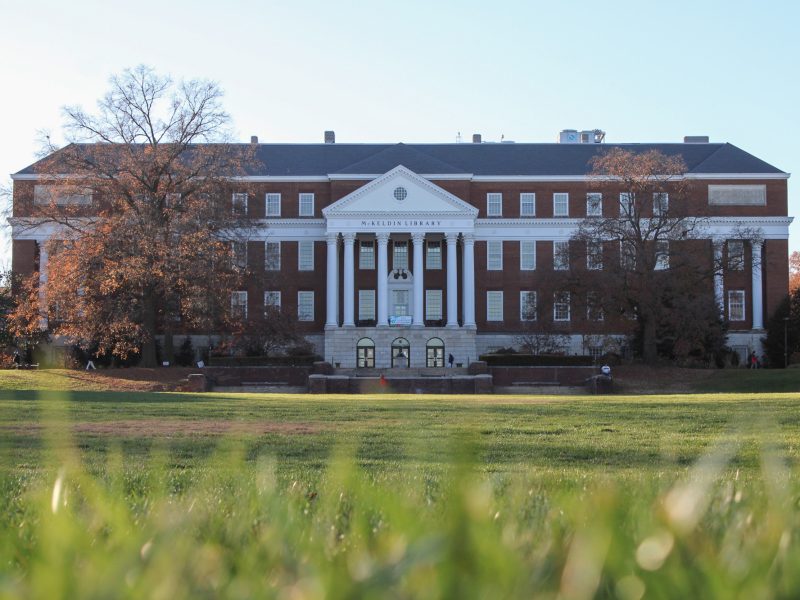Views expressed in opinion columns are the author’s own.
The University of Maryland leadership’s decision to drop classroom mask protections has raised deep concerns among many instructors. It did so without meaningful consultation with the instructors going into classrooms every day and without providing any applicable remedies or alternatives.
The policy is not in sync with the science and is out of step with other respected institutions nationally and in the Washington metro area, including American University, Georgetown University, George Washington University and University of Maryland–Baltimore County.
We, the University of Maryland chapter of the American Association of University Professors, urge university leadership to reinstate classroom mask protections while a more nuanced, democratically determined and data-driven COVID-19 protection plan is developed in genuine consultation with faculty and students. Above all, this plan must center this university’s equity and inclusion values.
Timing of the Decisions
Despite an Aug. 1 promise to issue mask guidance for the fall semester “in the weeks leading up to the first day of class,” the administration waited until less than three full business days before the start of classes to announce a significant departure from past practice. Instructors and students with concerns about their own health or the health of household members had almost no time to change classroom setups, adjust caregiving arrangements or seek alternative teaching formats. Likewise, university leadership prohibited normal requests for classroom changes just as the term began.
Who Makes These Decisions
Decisions that affect the physical and mental health of instructors should be made in close consultation with them. Instead, this decision provides yet another example of this university’s opaque, top-down management style.
If this university’s leadership had taken time to survey instructors’ views, they would have found this decision wildly unpopular. Some measure of that concern is revealed by the fact that our survey of this university’s instructors collected 382 responses in a matter of days, with nearly 84 percent of the respondents favoring some mask protections in the classroom — 67.8 percent favoring masks always and 16 percent favoring them at least at instructors’ or students’ request.
Who Counts at Our University
The decision to lift the mask requirement without communicating with instructors and students flies in the face of this university’s self-proclaimed principles of diversity, equity and inclusion.
We understand many healthy adults now feel protections are unnecessary for themselves, but many in our campus community have heightened risk of severe complications from COVID-19 or care for household members who do. This also includes parents of infants.
The available accommodations described in university communications do not account for caregiving responsibilities. They fulfill the university’s legal obligation but require community members to undergo complicated administrative processes that only account for individuals, not family members.
Equity requires all instructors with concerns for their own health or that of household members be able to teach safely in person. Likewise, students should be able to learn in person. Neither should be forced into an online format if they have concerns for their own safety or that of their family.
Local COVID-19 Rates
Based on the Centers for Disease Control and Prevention’s community level metric, this university’s leadership claims COVID-19 community levels are currently low in our region.
This is questionable.
The CDC’s metric is based on the case rate per 100,000 people, hospital admissions and bed availability — not community transmission. The CDC’s community transmission map currently notes high transmission in Prince George’s County. Even so, the CDC transmission rates are likely a substantial underestimate due to an increasing proportion of testing done at home. The risk of encountering an infectious individual in Maryland is about as high today, if not higher, than it was in fall 2021.
Furthermore, this university has limited testing options and has quietly discontinued its COVID-19 data portal. This leaves the university’s community members unable to gauge their actual risk of COVID-19 infection while on the campus.
A More Just, More Nuanced Approach
This university’s leadership needs to consult with the campus community before instituting such policies. Period.
It should temporarily reinstate the classroom mask protections while it works with instructors and students to develop a more refined in-class mask protection policy. For instance, masking might be required only in classes where a student or instructor has concerns. Class size and air filtration in specific classrooms should also guide decisions.
Reinstating mask protections in classrooms while this more comprehensive plan is developed would also allow time for most people on the campus to get the bivalent COVID-19 boosters. It might also mitigate the surges we have typically experienced when students return to the campus. It would signal an administration that goes beyond the rhetoric of equity and inclusion and recognizes that the well-being of faculty and students requires more than platitudes about self care.
We need a more compassionate and just plan for protecting all of this university’s community members, especially those who are most vulnerable. We need transparency about conditions on our campus and about the administration’s decision-making processes. Above all, we need a meaningful voice in decisions affecting our health and our very lives.
University leadership must fulfill its responsibility to protect the health and safety of all university members and the surrounding community with new holistic protections.
Holly Brewer is the Burke chair of American Cultural and Intellectual History and president of the University of Maryland chapter of the American Association of University Professors. She can be reached at hbrewer@umd.edu.
Karin Rosemblatt is a history professor and vice president of the University of Maryland chapter of the American Association of University Professors. She can be reached at karosemb@umd.edu.
Louiqa Raschid is the dean’s professor of information systems in this university’s business school and treasurer of the University of Maryland chapter of the American Association of University Professors. She can be reached at lraschid@umd.edu.
Luka Arsenjuk is an associate professor in this university’s languages, literatures and cultures school and secretary of the University of Maryland chapter of the American Association of University Professors. He can be reached at arsenjuk@umd.edu.
Solomon Comissiong is the president of the Black Faculty and Staff Association and executive committee member at-large of the University of Maryland chapter of the American Association of University Professors. He can be reached at solomon@umd.edu.
Nate Beard is a doctoral student in this university’s information studies college and executive committee member at-large of the University of Maryland chapter of the American Association of University Professors. He can be reached at nbeard@umd.edu.



